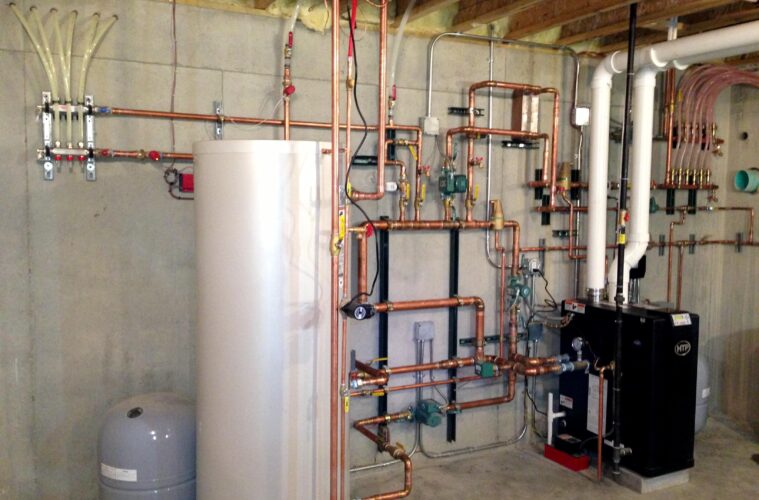In the quest for sustainable and efficient energy solutions, geothermal heating stands out prominently. As homeowners and builders prioritize both environmental impact and long-term savings, this natural energy source is gaining traction.
Geothermal systems, derived from the Earth’s warmth, offer a harmonious blend of nature and technology, setting the stage for an eco-friendlier household. The crucial question: Does geothermal heating align with your specific needs, preferences, and circumstances?
As you delve into this guide, you’ll uncover its compelling advantages and practical challenges, empowering you to make an informed choice tailored to your unique situation.
Understanding The Basics
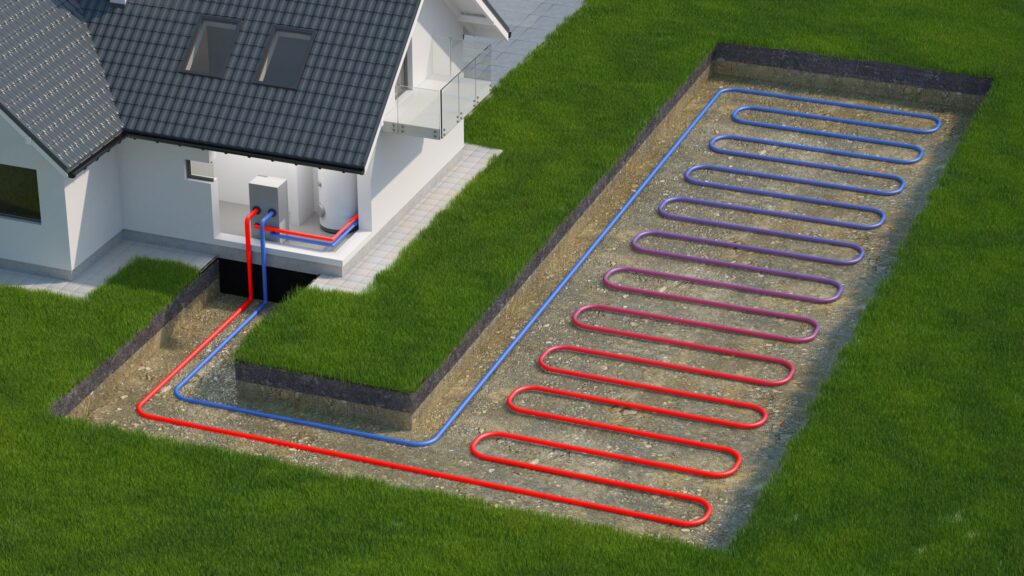
source: pinterest.com
Before diving into the intricacies of geothermal heating, it’s pivotal to grasp its foundational principles. At its core, geothermal heating capitalizes on the consistent temperatures deep within the Earth, regardless of the atmospheric conditions.
Below are the primary elements to note:
- Nature’s furnace: The Earth’s core emits a steady warmth. Geothermal systems tap into this heat during colder months to warm buildings.
- Efficient heat transfer: When comparing a standard heat pump vs geothermal, the latter stands out for its direct utilization of the Earth’s constant temperature. This direct approach results in more consistent and efficient energy transfer.
- Cooling capabilities: In the hotter months, the same system can reverse its process, extracting heat from your home and dissipating it into the ground. This dual-functionality highlights its advantage as both a heating and cooling solution.
Geothermal heating isn’t merely about extracting heat from the ground. It’s a well-engineered process designed to offer maximum comfort throughout the year, efficiently using the Earth’s natural properties to your advantage.
The Benefits To Recognize
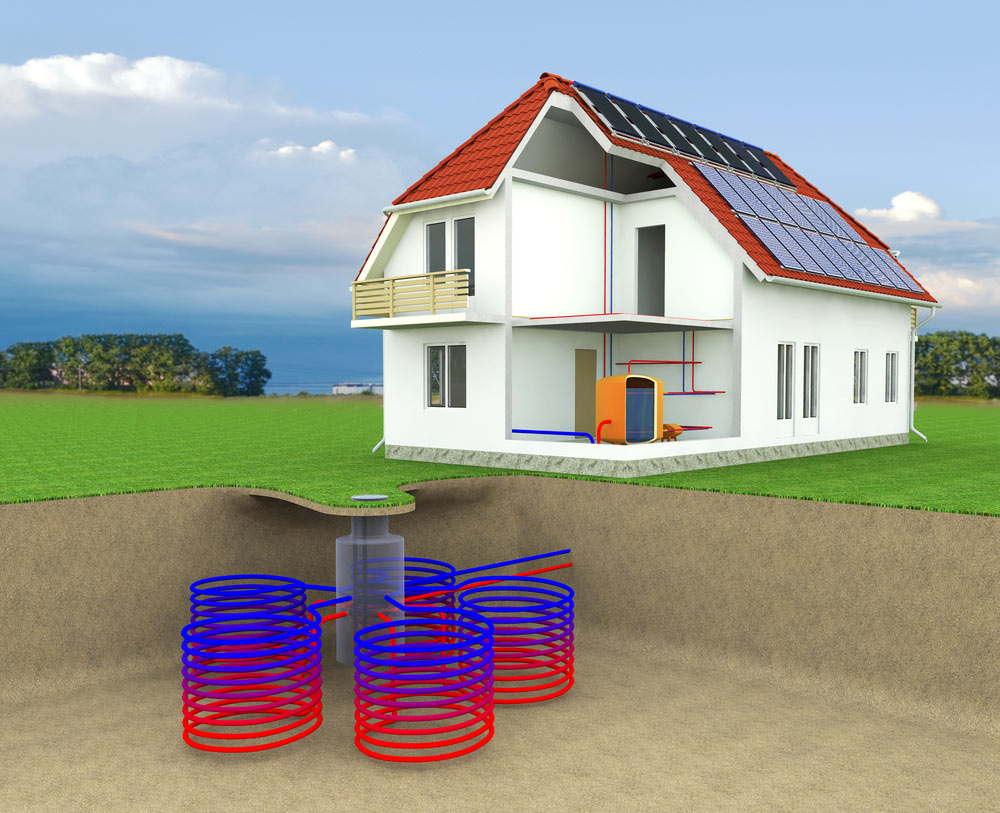
source: pinterest.com
As you explore the possibilities of geothermal heating and air conditioning, it’s essential to have a clear understanding of its advantages.
Here are the primary benefits to recognize:
- Energy efficiency: Geothermal systems operate at 400% efficiency, making them one of the most energy-efficient heating and cooling solutions available. This means less energy is wasted, and you get more bang for your buck.
- Eco-friendly: By leveraging the Earth’s natural heat, geothermal heating reduces the need for fossil fuels, decreasing greenhouse gas emissions and your carbon footprint.
- Cost savings in the long run: While the initial investment might be higher, the monthly energy savings can recoup the cost within a few years, leading to substantial savings in the long term.
- Durability and longevity: These systems have fewer moving parts, which reduces the risk of breakdowns. Plus, with proper maintenance, a geothermal unit can last decades, far outlasting conventional HVAC systems.
- Quiet operation: Unlike traditional heating and cooling units, geothermal systems operate quietly, ensuring a peaceful household environment.
Indeed, geothermal heating presents many benefits, from efficiency and eco-friendliness to cost savings and durability. It’s an option that combines modern technology with nature’s offerings for optimal home comfort.
Drawbacks Worth Noting
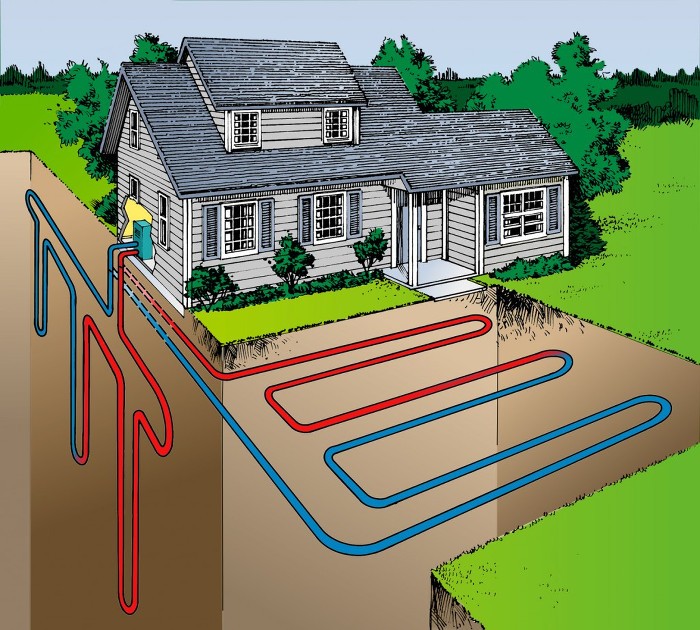
source: pinterest.com
While geothermal heating and air conditioning offer numerous benefits, it’s equally crucial to be aware of potential drawbacks.
Below are the primary challenges to consider:
- Initial investment: The cost to install a geothermal system is often higher than traditional HVAC systems. This upfront expense can be a deterrent for some homeowners, even with the promise of future savings.
- Property requirements: Geothermal installations necessitate a substantial amount of ground space or access to a water source. Not all properties have the necessary space or geographical features to accommodate the system.
- Installation disruption: Setting up a geothermal system involves digging, which can disrupt your yard or garden. Depending on the property, restoration might be necessary post-installation.
While geothermal heating and air conditioning is a stellar choice for many, it’s essential to weigh these potential drawbacks against the benefits. A comprehensive assessment will help determine if it’s the best fit for your specific circumstances.
Key Considerations Before Making A Choice
Before settling on geothermal heating and air conditioning, it’s pivotal to mull over a few vital considerations.
Here are the main points to ponder:
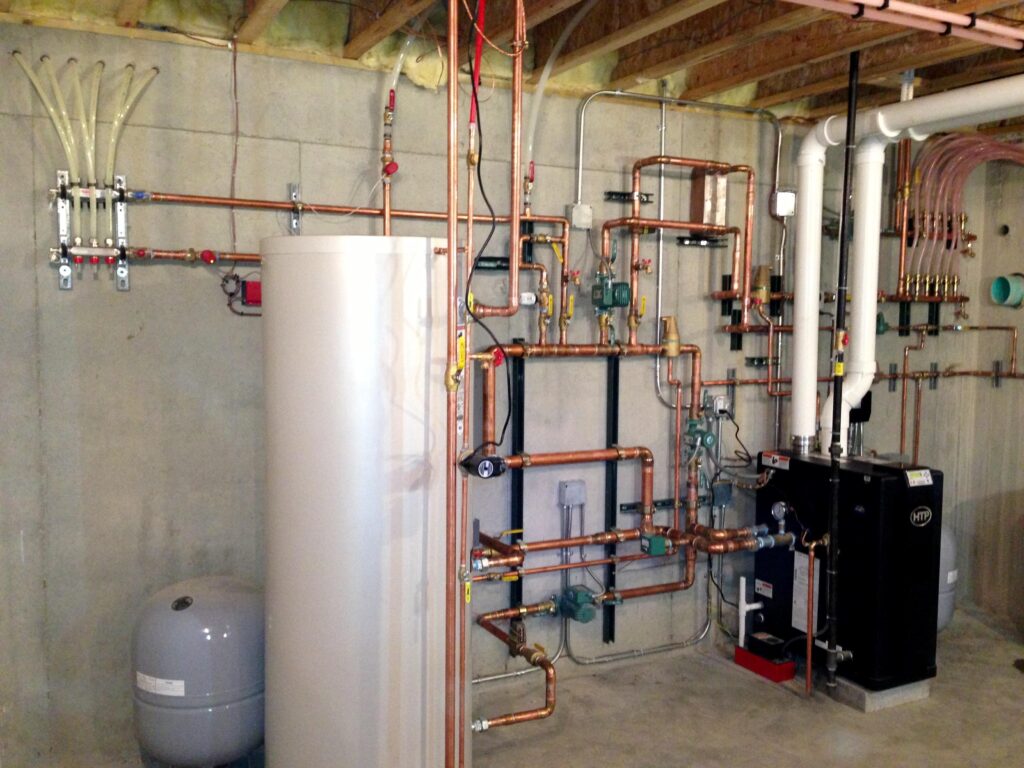
source: pinterest.com
- Budget constraints: Look at your finances. Can you afford the initial higher cost of installation? Remember, while the upfront expense is significant, the long-term savings might make it a worthy investment.
- Geographical location: Certain areas benefit more from geothermal systems due to their ground temperatures or availability of water sources. Research if your location is optimal for this technology.
- Home’s heating and cooling needs: Evaluate the current needs of your home. If you’re aiming for an energy-efficient home, replacing an outdated and inefficient system with a geothermal solution could be a pivotal move in achieving that goal.
- Environmental impact desire: If reducing your carbon footprint is a priority, geothermal systems are hard to beat. Consider how much value you place on sustainability when making your decision.
- Future resale value: Some homebuyers are drawn to properties with geothermal systems because of their eco-friendliness and cost-efficiency. Think about how this might impact your home’s marketability down the road.
Selecting the right heating and cooling system involves more than initial costs or potential savings. It’s a blend of understanding your home’s needs, personal values, and the broader implications for the planet and property value.
Conclusion
Geothermal heating and air conditioning present a compelling blend of eco-friendliness and long-term cost savings. But like any significant investment, it’s essential to weigh the pros and cons. By thoroughly considering benefits, potential drawbacks, and critical factors tailored to your situation, you can decide if this sustainable solution aligns with your home’s needs and values.

